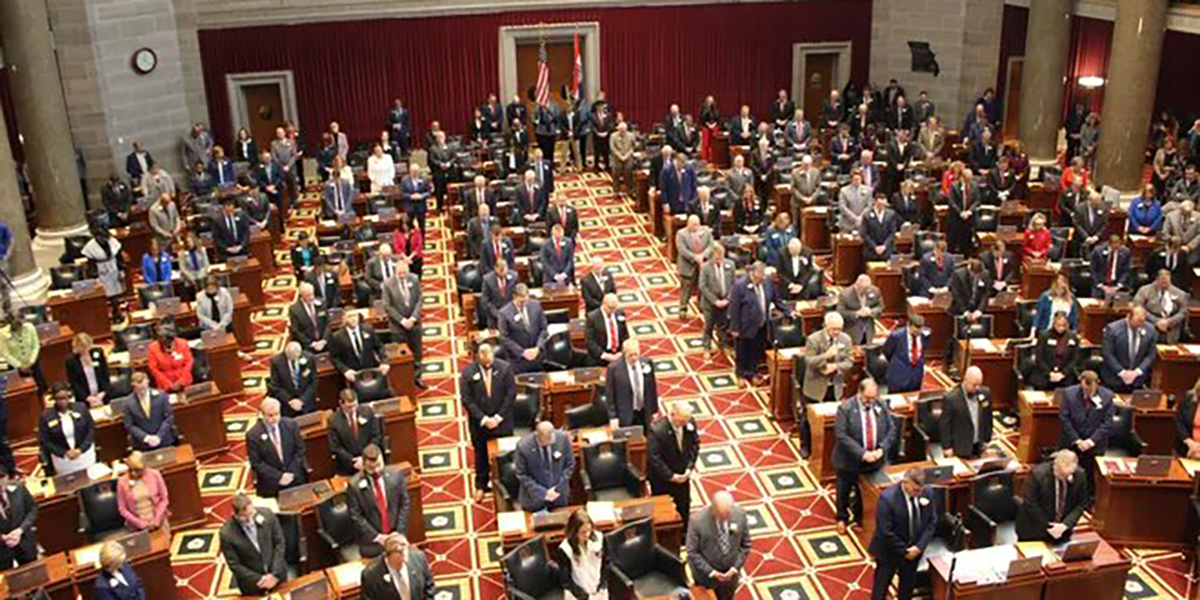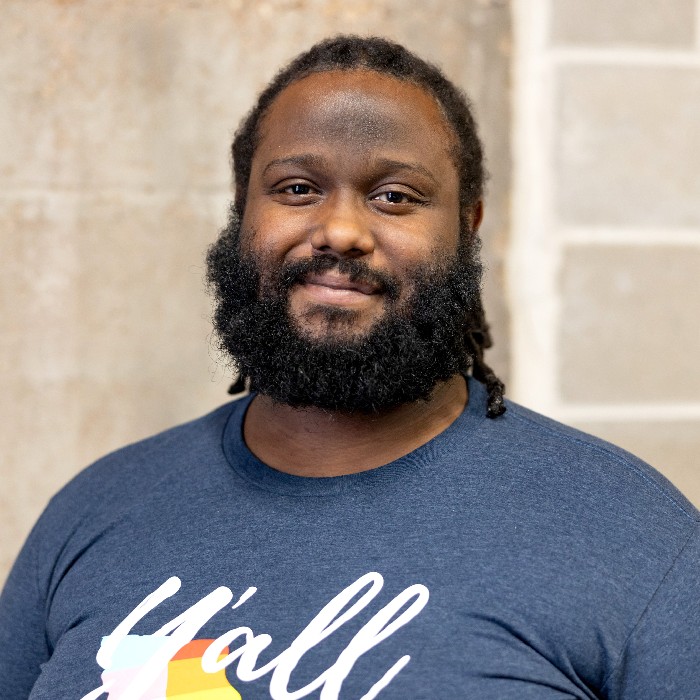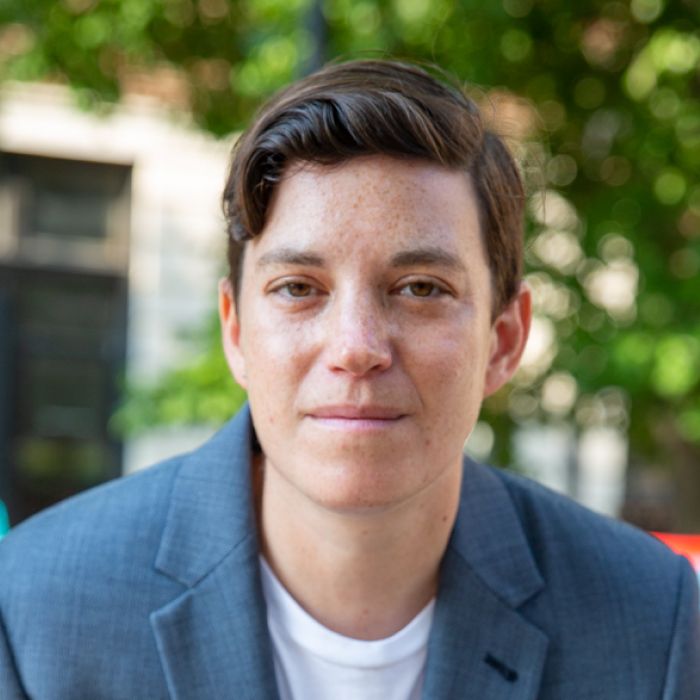Disenfranchising Voters is Top Priority
Missouri’s General Election occurred last Tuesday and the results were astonishing. Right-wing backed candidates were defeated across the state in school board elections. Within Jefferson County, Springfield, St. Charles, and St. Louis County, voters chose to focus on actual educational issues facing our teachers and students instead of regulating their bodies and dictating how our educators should do their jobs. It is a sign that change is happening and voters are tired of elected officials using people’s bodies and very existence to score campaign points.
Lawmakers are seeing this writing on the wall and are hellbent on limiting voter power to keep control. It is for this reason why the House and Senate continue to advance three separate bills aimed at eliminating the majority rule that has defined Missouri’s citizen initiative process for more than a century.
Meanwhile, a slew of other attacks on our rights and democracy advanced this week. The Senate Select Committee on Empowering Missouri Parents and Children contentiously heard SB 950 (Brattin R-31), an education LGBTQ+ book ban; the House Special Committee on Public Policy voted to pass HB 1650 (Christensen R-2), a drag ban; and the House Rules Legislative Oversight Committee voted to pass HB 1993 (Gallick R-62), focused on restricting minors from accessing harmful material on the internet. Finally, SB 727 (Koenig R-15), an education omnibus bill, passed out of the House committee after already passing the Senate chamber.
NOTE: Due to Monday’s solar eclipse, both chambers are doing a technical day with the Senate convening on Monday at 4 p.m. and the House not until Tuesday at 4 p.m.
TL;DR — Here are the THREE steps to take action this week:
- Contact your representative and tell them to VOTE NO on SJR 74. They need to protect the voices of those who they represent.
- Contact your representative, again, and urge them to VOTE NO on SB 727. Public education should be fully funded and LGBTQ+ students need to be protect.
- Sign up to phone bank with Jobs with Justice on Tuesday, April 9 at 12 p.m. to inform people about SJR 74 and urge them to contact their representative.
URGENT LEGISLATIVE NEWS
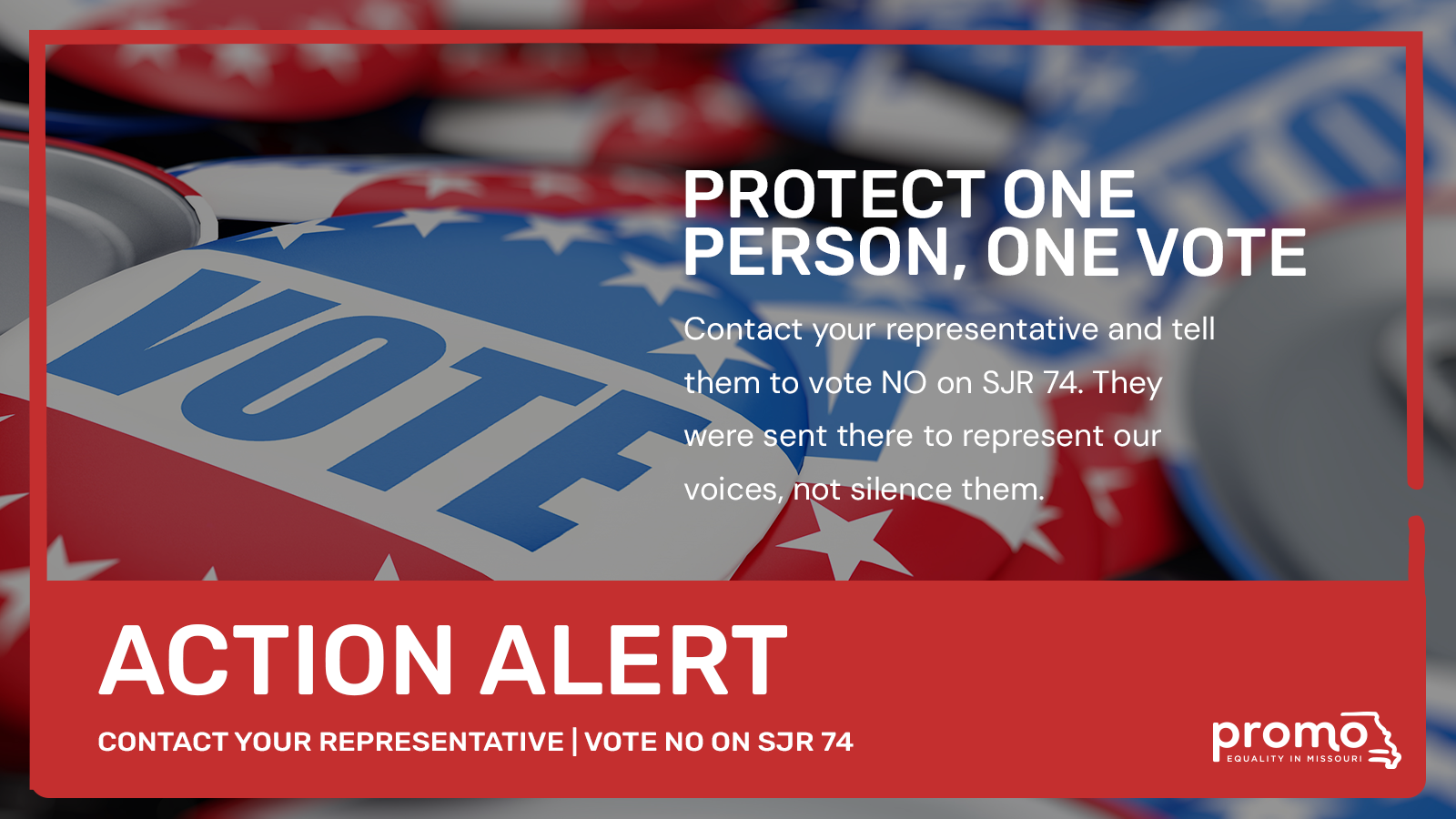
The legislature continues its attempt to disenfranchise the voices of Missourians and strip our right to vote on issues we care most about. SJR 74 (Coleman R-22) was voted out of the House Elections and Elected Officials Committee and has already passed out of the Senate chamber.
The House Committee amended the bill by adding back the widely-talked-about “ballot candy” that would have no practical impact on the petition process, but rather is language designed to trick Missouri voters to hide the true impact of the measure. This language was already removed from the original bill by the Senate chamber.
For example, a requirement was added that those who vote in Missouri elections be U.S. citizens and a clause stating foreign governments cannot fund ballot initiative efforts. Both of these items are already required under Missouri law, but would trick voters to pass this legislation. It now heads to the House Rules Committee for a vote before being added to the House calendar for debate.
We need you to tell your Representative to VOTE NO on SJR 74. Tell them to protect the people’s voices they represent and our right to use our voices on issues we deeply care about.
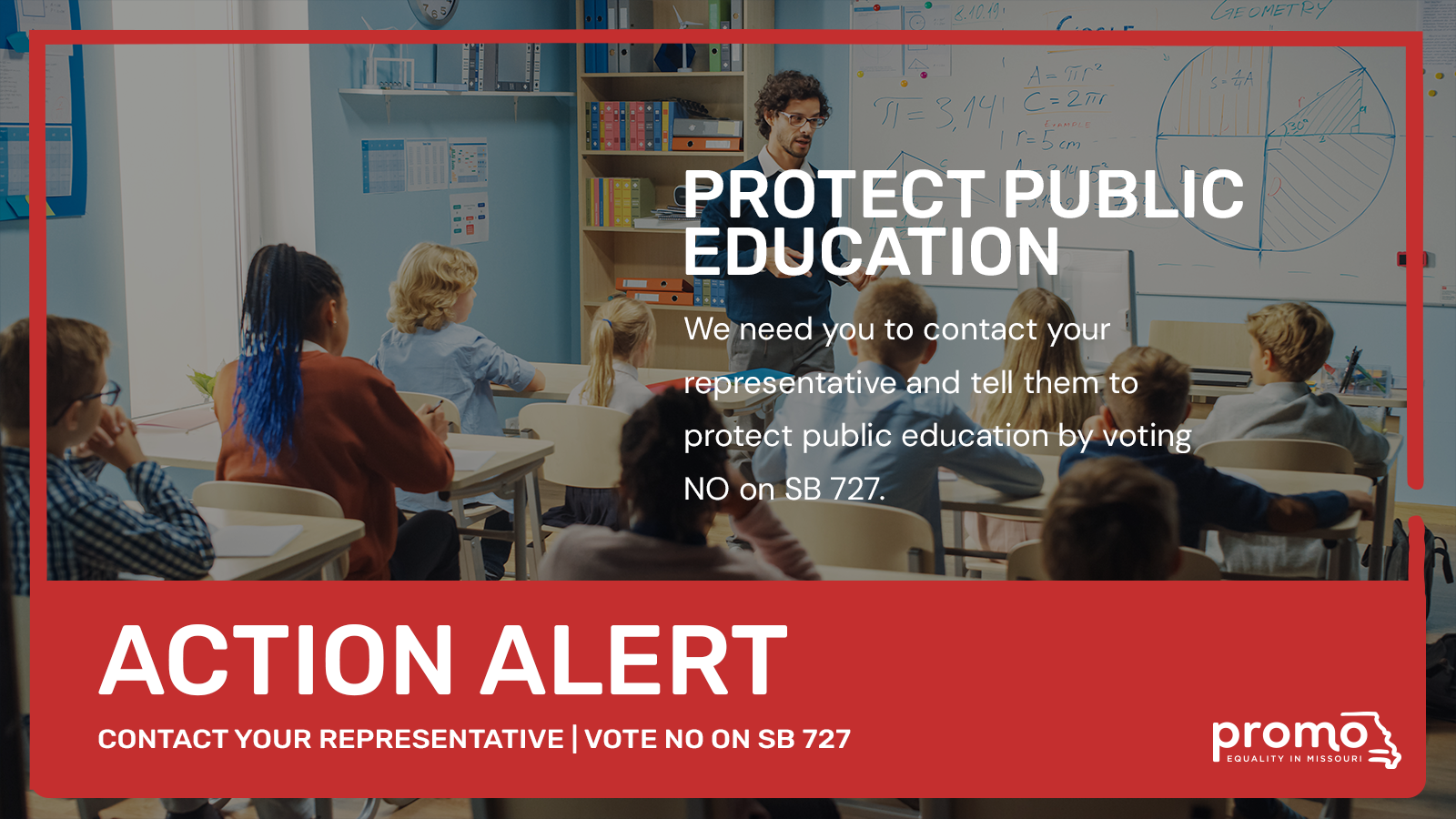
Education reform continues to be a high priority for lawmakers. SB 727 is a 21-page school voucher and charter expansion bill that threatens public education and strips funding from rural and urban schools alike by depleting overall state revenue. Vouchers are tax dollars to private/religious schools, hit all districts’ revenue and enrollment creating a ripple effect impacting everyone.
Private voucher schools do not provide the same rights and protections to students as public schools, such as those in Titles IV and VI of the Civil Rights Act, Title IX of the Education Amendments Act of 1972, the Individuals with Disabilities Education Act, Title II of the Americans with Disabilities Act, and the Every Student Succeeds Act.
Students who attend private schools using vouchers are stripped of the First Amendment, due process, and other constitutional and statutory rights guaranteed to them in public schools. Therefore, it makes sense that private schools that accept taxpayer-funded vouchers often deny admission to, or expel, LGBTQ+ students and students with LGBTQ+ family members.In states with similar laws, statistics found that these schools also teach anti-LGBTQ+ curriculum, have explicitly anti-LGBTQ+ policies, and often belong to associations that condemn homosexuality.
SB 727 is just another anti-LGBTQ+ student ban. Tell your Representative to VOTE NO on SB 727 and protect LGBTQ+ students and ensure public education is funded. We need all our voices to stop this bill!
HOW YOU CAN HELP
In addition to SJR 74, there are two others that impact the initiative petition process — HJR 86 and HB 1749. Each of these takes aim at removing the people’s ability to use the initiative petition process to vote on issues that deeply matters to them.
HJR 86 (Black R-129) passed out of the House after contentious debate and heads to the Senate to be assigned a committee for public hearing. HJR 86 is similar to SJR 74, except that it passed out of the House with the “ballot candy” language included. Both SJR 74 and HJR 86 are joint resolutions, which means if either is passed out of the General Assembly the Secretary of State determines fair ballot language and assigns which election it appears on the ballot to be voted on by the people of Missouri.
HB 1749 (Haffner R-55) passed out of the Senate Elections Committee and, if turned in, will be added to the Senate calendar. Unlike the joint resolutions, this bill would go to the Governor’s desk to be signed into law if passed by both chambers. This bill is written to give additional powers in the Secretary of State office and adds numerous provisions regarding circulators. For example, it would require petition circulators be citizens of the United States, residents of Missouri, or physically present in Missouri for at least 30 consecutive days prior to the collection of signatures. It also prohibits them from being compensated based on the number of signatures collected.
Our partners at Missouri Jobs with Justice are holding a phone bank on Tuesday, April 9 at 12 p.m. to educate others about the dangerous of what the legislature is trying to do to the initiative petition process. You’ll have the opportunity to encourage them to spread awareness about the bills and ask them to contact their representative telling them to vote NO on SJR 74.
If you’re interested in participating, please email kay@mojwj.org asking about information for the Tuesday, April 9 phone banking event.
ADDITIONAL LEGISLATION WATCH
This past week, the Senate held a public hearing on SB 950 (Brattin R-31), a bill that attempts to broaden the definition of obscene material in the context of what teachers and schools cannot distribute to students, also known as pornography. The definition in this bill expands it to written material as well as visual that does not adhere to “contemporary community standards.” In reality this bill is just a way to harass librarians and ban LGBTQ+ literature and curriculum in schools. Our opposition didn’t even try to hide it, in that they read passages from banned books about LGBTQ+ characters, as evidence of their idea of obscenity. All students should have the right to see their family and life represented in school curriculum and among school library bookshelves, and those experiences should not be up to individual counties’ definition of community standard.
With six weeks left of this year’s legislative session, the rhetoric and attacks against our community are going to be louder. Examples are two previously mentioned bills — HB 1650, a drag ban, and HB 1993, a bill restricting minors from accessing harmful material on the internet. It is completely possible both could be added to the House calendar which would allow these to be debated on the floor.
